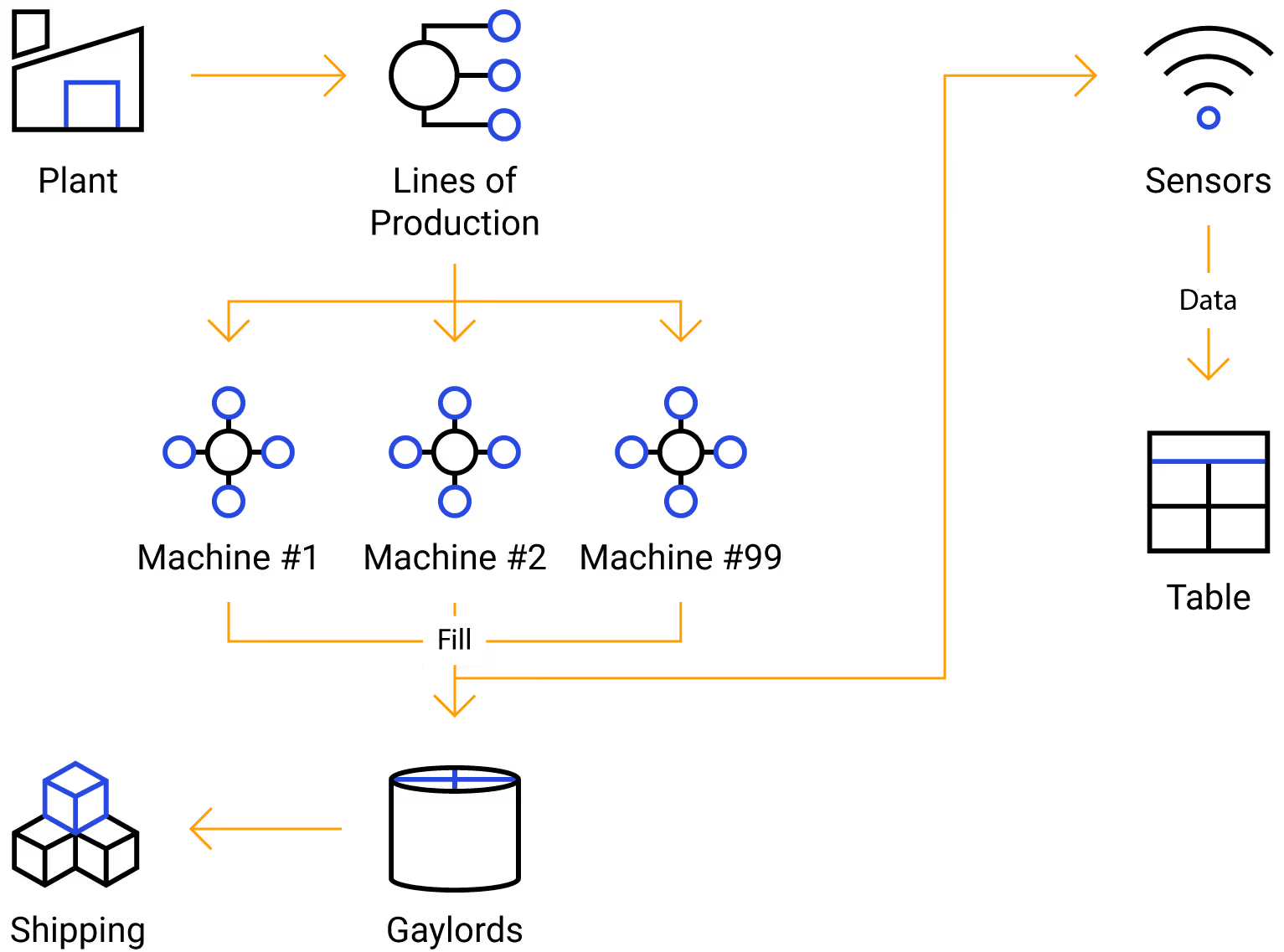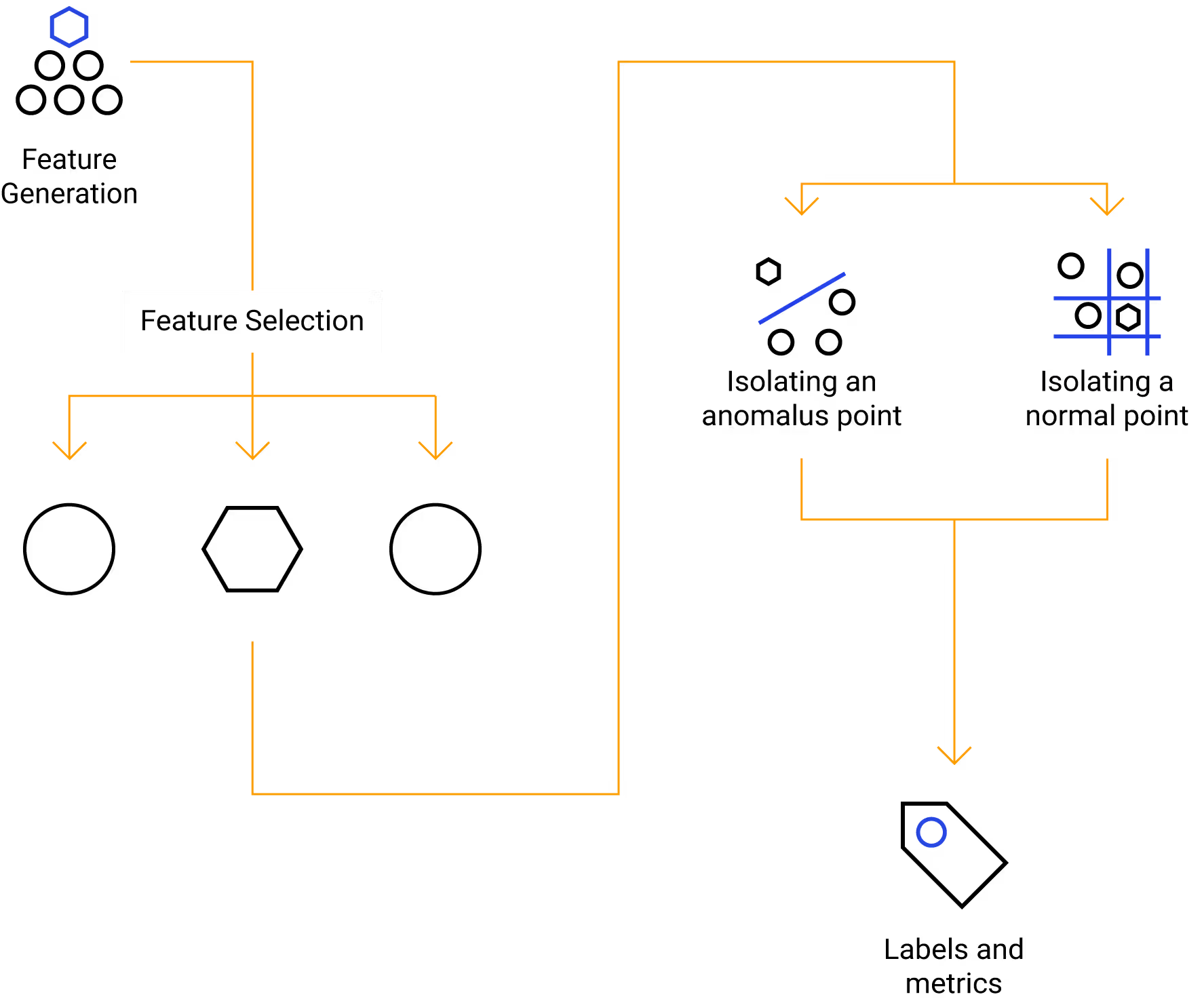Vast Amounts of Data With Limited Insights
A large-scale manufacturing company with multiple plants and production lines, was generating vast amounts of machine and sensor data but was not leveraging this data to its full potential. The company faced challenges in identifying anomalies in production output, specifically in large containers (Gaylords) containing product materials. This absence of analytics led to undetected quality issues, resulting in increased scrap, wasted production time, and the risk of shipping faulty materials to clients.
And Millions of Data Points To Work With
Manufacturers have production plants. Inside each plant, there are multiple production lines. Each line contains many machines, and each machine is equipped with hundreds of sensors. These machines fill Gaylords with the products. The sensors generate tabular data with millions of rows and hundreds of columns. Once filled, the Gaylords are shipped to clients.

We Ran An Exploratory Data Analysis
Factored’s engineers used Databricks to conduct extensive exploratory data analysis (EDA) on the manufacturing data, which included over 500 sensor features per production cycle. The team created a time series dataset grouped by line, material, and Gaylord Id, resulting in 100’s of unique (line, material) combinations, each with thousands of Gaylords. For each combination, IQR-based statistical features (mean, median, Q1, Q3, IQR, variance) were computed for all sensor metrics, transforming the data from cycle-level to Gaylord-level. Feature ranking was performed using a Random Forest classifier to select the top features explaining 80% of the variance. An Isolation Forest model was then trained for each (line, material) combination, with hyperparameter tuning via MLFlow and grid search.
Mapping Out A Process

Model performance was validated against labeled scrap data, achieving an F1 score of 0.81, detecting anomalies with 95% precision (meaning it is correct 95% of the time when it flags an anomaly) and capturing 75% of all anomalies that occur.
To Automated Anomaly Detections
Factored AI implemented an advanced data analysis and anomaly detection system enabling the manufacturer to automatically identify defective production batches before they are shipped. This solution helps prevent costly quality issues and reduces the risk of customer complaints.
With A Machine Learning Model Run Daily
The machine learning model was deployed to run daily, automatically detecting anomalous (scrap) Gaylords. When anomalies are identified, the relevant plants receive notifications, and plant managers and operators review the flagged Gaylords before shipment. Business users can also access the results and sensor data through their existing UI, enabling them to monitor machine status and production quality.
This integration into daily workflows has saved significant costs in transportation and has also reduced the time machines spend producing scrap, as issues are detected and addressed much sooner. It also prevents clients from receiving scrap, leading to fewer client complaints and improved customer satisfaction.
To Detect Hundreds of Anomalies And Saving 3% of Faulty Shipments
The solution is now in production, detecting 100’s of anomalous Gaylords monthly and preventing defective products from being shipped to customers. On a daily basis, approximately 3% of the data that was previously being sent as good products is now detected as scrap and removed from deliveries to clients.
Additionally, early detection of issues allows the manufacturer to address machine problems more quickly, reducing the duration of scrap production. The solution has also led to a noticeable decrease in client complaints and improved overall customer satisfaction.




